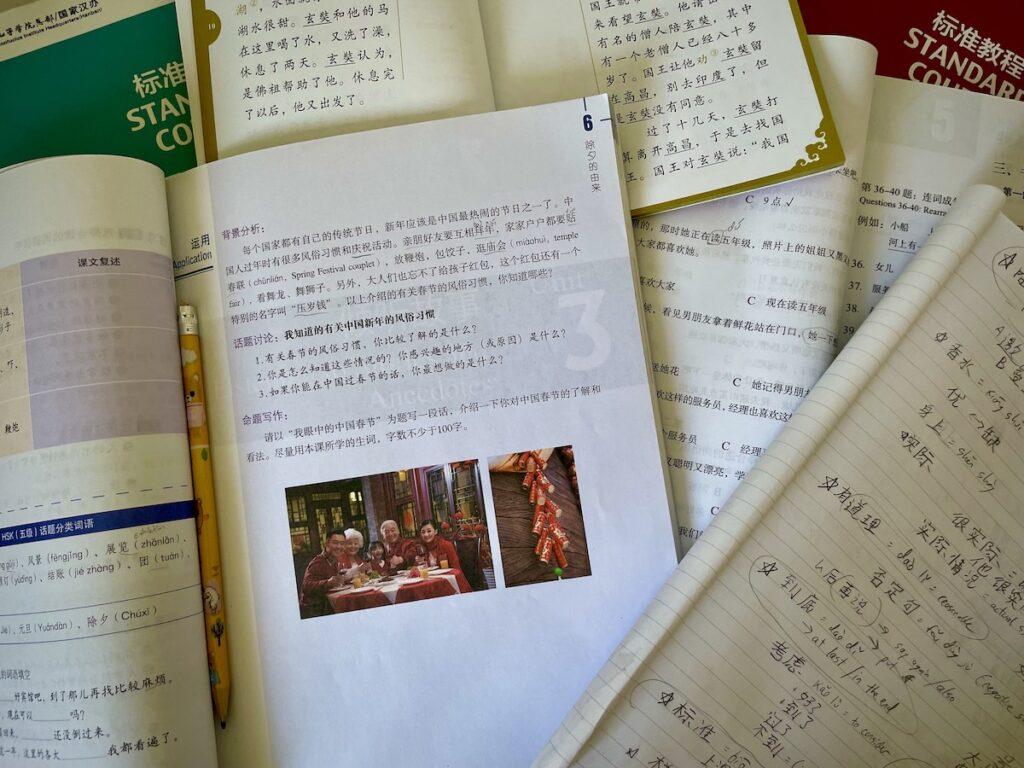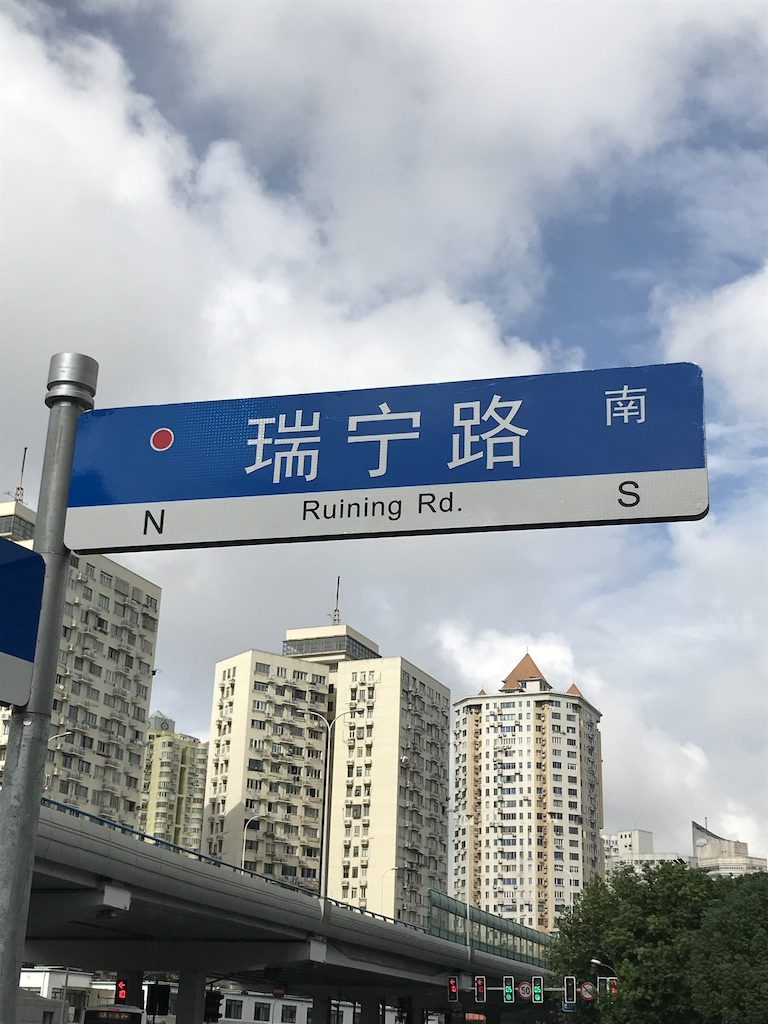Culture shock is a real thing, of course. Every culture has its own quirks that take some getting used to. In China, people spit on the street. Sometimes kids will poop on the street. They have squat toilets. People shove in the subway. They eat frogs.
Sure, these are all different, unusual, maybe even weird to someone coming from the West. Fundamentally, though, they are all superficial. I have been pleasantly surprised with how quickly I’ve grown accustomed to all those things.
You ignore the spitting. You laugh at the kid pooping. You build up your thigh muscles for squatting, and you learn to either shove along with everyone else. Or else find the toughest old lady you can and follow her. Oh, and frog meat is actually pretty tasty.
None of those things, or any of the other superficial cultural differences, are really that difficult to adjust to if you’re able to keep an open mind.
The biggest difficulty is by far the language barrier. I swear I’m learning Chinese, but damn it, it’s hard!
Check out my guide on How To Learn Chinese

I’ve shared my personal experience going from being an absolute Chinese beginner to being able to discuss such complex topics as my favorite Harry Potter movie in Mandarin. Hopefully, my experience can help you to learn Chinese as much as it’s helped me.

But sometimes the language barrier can often feel like an actual barrier. Like there is an actual physical wall between you and the culture. Maybe you can catch glimpses of the other side, but until you know enough of the language to actually climb over the wall, you’re never going to really understand your new home. You’ll always be an outsider.
I’ve been studying a little bit every day. And I have improved. I can read the occasional word on subway ads. I can pick up little snippets of conversation. I can order food with relative success. I’ve been told my “谢谢” (‘xìe xie’ as in ‘thank you’) is the “most correct.”
The other day I heard a knock on the door while I was sitting in my apartment. A round, middle-aged man with a buzz-cut handed me a piece of paper and started firing words at me. He carried himself like he was some kind of authority figure.
I stared at him blankly for a moment, then said “听不懂”, (‘tīng bù dǒng’). “I don’t understand.”
The man sighed, then repeated what he’d just said, but a little bit louder. I shrugged. He kept repeating. Louder and louder.
Soon, a herd of old women gathered around the door. All of my neighbors, came to watch the commotion. What the hell’s going on with this foreigner?
One of the neighbors tried to help. She wore a red flowery dress that kind of looked like a mumu. She repeated what the man said, but much slower.
Unfortunately, I just didn’t know the words. I finally just smiled and accepted the piece of paper the man handed to me. “Okay,” I said. “谢谢,” I said, as correctly as I could. Was the piece of paper a bill? A receipt? An eviction notice?
I shut the door feeling humiliated. Here I am, a grown ass man, and I can’t even deal with someone handing me a piece of paper in my apartment. I felt utterly helpless. It’s incredibly humbling, and a little bit humiliating.

But at least I’m trying…
And yet, there are expats who live in Shanghai for years and never learn the language. Some just accept the situation and are okay with it. Many others, however, seem to develop a resentment towards the Chinese. How dare they not speak my language in their own country? Did they learn nothing from the colonial era?
The solution, of course, is to learn the language. It’s not easy, but do able. Slowly, but surely, I’m making progress. Learning Chinese has been difficult, but still kind of fun.
At least I’m an immigrant in a country that actually wants me here. I’m thankful for my Chinese neighbor who at least attempted to help, and to all my coworkers who are willing to come with me to the bank (or police station if necessary) to translate. I’m thankful for the restaurant owners who put up with me pointing and saying “give me this.” I’m thankful for the random woman in the subway station that helped my friend and I with the ATM that didn’t have an English option.
Anyway, here are some resources I’ve been using to learn Chinese…
Skritter
Skritter has been very nice for learning Chinese characters. I find I haven’t really retained much in terms of writing, but it has definitely helped learning to read. I wish there was some option for reading practice, like short stories that used the characters you’d just learned. However, it’s a nice feeling to recognize characters on signs and in the subway. It’s a little bit expensive, but I think it’s been worth it. If you click on this link, I’ll also get some money, so that’s a plus!
Hello Chinese
Hello Chinese is essentially Duolingo for learning Chinese. The two apps are very similar in how they present information and help you study. However, Duolingo sort of just throws characters at you and expects you to remember them. Hello Chinese uses more of the pinyin (a transliteration of Chinese into the English alphabet) and eases you into Chinese in a much better way. There are also videos of native speakers to listen to and get you used to how the language is actually spoken.
Language Schools
http://www.smartshanghai.com/education/language-schools
http://www.timeoutshanghai.com/features/Things_to_Do-Classes-Language_classes/46061/The-best-Chinese-language-classes-in-Shanghai.html
I’m looking in to language schools here in Shanghai. Haven’t taken any classes yet, but I do remember that face to face lessons were key in improving my Spanish back in the day. I figure it’ll be the same in my attempts at learning Chinese. I’ll post something after taking some classes and report on how effective I think they really were.
Fluent Forever
https://fluent-forever.com/product/fluent-forever-pronunciation-trainer/
I’m still not convinced about the Fluent Forever App, plus they don’t offer Chinese. However, I think the pronunciation trainers are fantastic. The Chinese trainer was absolutely essential in helping me learn and practice the different tones in Mandarin.


nciku.com is also a great resource. You can draw the symbols into the site for better understanding of the characters. Used it throughout college and in China.
Just started reading your blog, it’s definitely bringing some forgotten memories back to mind. Fun times, fun country!
Hey Tim, thanks for the link, that’s a good website too.
I’m definitely having a lot of fun here, both learning the language and hanging out in China. Very fun times indeed!